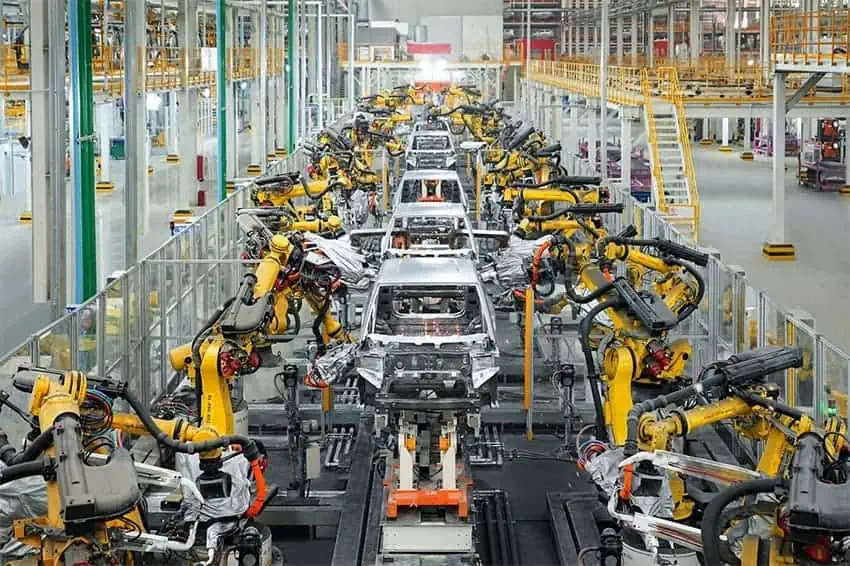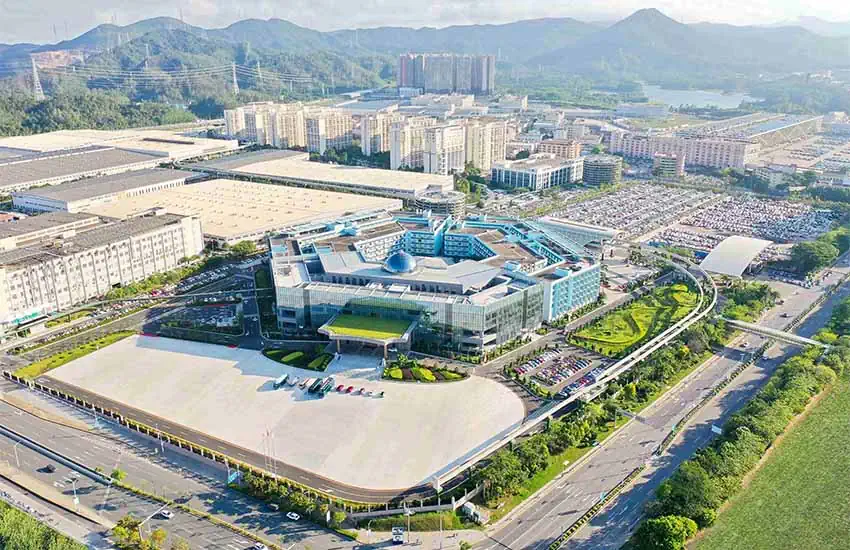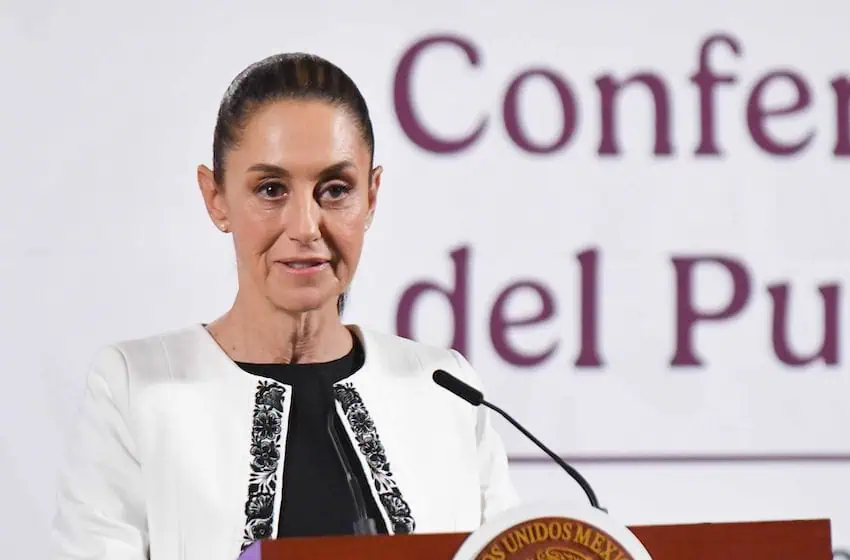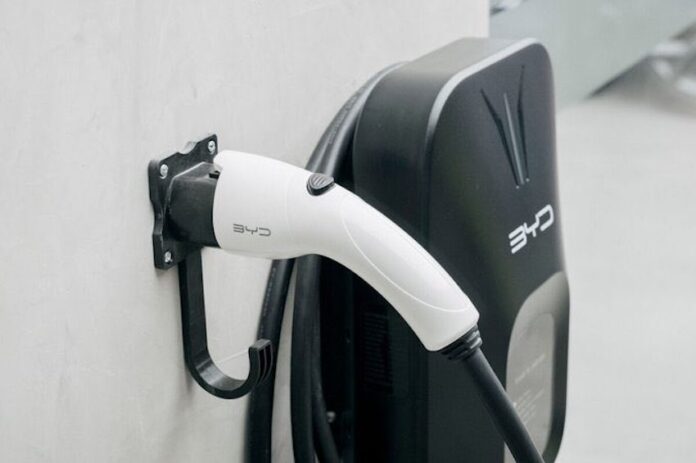The Chinese government is delaying approval for electric vehicle (EV) manufacturer BYD to build a plant in Mexico amid concerns that the company’s smart car technology could be accessed by the United States, according to the Financial Times (FT).
Citing two people “familiar with the matter,” the London-based newspaper reported on Tuesday that Chinese automakers require approval from the Chinese Ministry of Commerce to manufacture outside China and that approval has not yet been granted.

BYD, the world’s largest EV company, announced plans to open a plant in Mexico in 2023 and confirmed that intention in early 2024. The Shenzhen-based company said the plant would create around 10,000 jobs and produce 150,000 vehicles per year. BYD Americas CEO Stella Li has stressed that the vehicles would be sold only in the Mexican market — where 40,000 BYD cards were sold last year — but there is some doubt about that assertion.
Citing its two sources, FT reported that Chinese authorities fear Mexico would “gain unrestricted access to BYD’s advanced technology and know-how” if the company were to open a plant in Mexico. They said that Mexico could even possibly allow the United States to access that technology.
“The commerce ministry’s biggest concern is Mexico’s proximity to the U.S.,” one source told FT.
The newspaper’s two sources also said that Beijing is giving preference to projects in countries that are part of China’s Belt and Road initiative, a global infrastructure development strategy.
“Shifting geopolitical dynamics have also contributed to Mexico cooling on the plant,” FT reported.
Trump’s protectionist posture
United States President Donald Trump has given potential investors in Mexico pause for thought by threatening to impose — and then briefly imposing — 25% tariffs on all imports from Mexico. Although Mexico has a free trade agreement with the United States and Canada, the USMCA, there is no certainty that Trump won’t reimpose blanket tariffs on Mexican goods at some point in the future.

Mexican steel and aluminum, and goods not covered by the USMCA, are currently subject to a 25% tax when entering the United States, and additional Mexican products — including cars — could be affected when the U.S. implements reciprocal tariffs early next month or other duties at a later date. Trump has specifically threatened to impose hefty tariffs on vehicles made in Mexico by Chinese companies.
While BYD has said it has no intention to export EVs to the United States from Mexico, the U.S. government’s increased protectionism could still be a factor in the Chinese Commerce Ministry’s decision to delay approval for the company’s proposed Mexico plant.
The possibility — or perhaps even strong probability — that Mexico will impose new tariffs on imports from China could be another factor.
Trump has accused Mexico of being a “backdoor” for Chinese products to enter the United States tariff-free. Late last year, he said he would “seek strong new protections against transshipment” in an updated USMCA “so that China and other countries cannot smuggle their products and auto parts into the United States tax-free through Mexico to the detriment of our workers and our supply chains.”
The Mexican government denies that Mexico is a transshipment hub, but has nevertheless imposed new tariffs on some imports from China such as textiles and clothing. It has also launched anti-dumping investigations into Chinese steel and aluminum products, while late last month, President Claudia Sheinbaum said that imposing additional tariffs on imports from countries with which Mexico doesn’t have free trade agreements, such as China, was an option.
Sheinbaum and other Mexican officials have asserted that their main motivation for imposing new tariffs is to protect Mexican industry rather than appease the United States. However, the government has also stressed that it prioritizes its trade relationship with the United States — where more than 80% of Mexican exports are sent — and Economy Minister Marcelo Ebrard even said that Mexico would “mobilize all legitimate interests in favor of North America” amid the ongoing trade war between the United States and China.
In October, Sheinbaum was lobbied by a group of U.S. lawmakers to address “national security risks” associated with the capacity of Chinese “connected” vehicles to collect sensitive data.
Is Mexico being hostile toward China due to US pressure?
The Mexican government has made it clear that it wants to reduce Mexico’s reliance on imports from China and other Asian countries. Doing so, and strengthening Mexican industry, are central goals of the Plan México economic initiative announced by the government in January.

In addition to imposing new tariffs on imports from China, the Mexican government has refused to offer federal incentives to Chinese EV manufacturers planning to invest in Mexico, according to Mexican officials who spoke to Reuters almost a year ago. The officials told the news agency that the move was the result of pressure from the United States government, in particular the Office of the U.S. Trade Representative. The pressure has only increased since Trump returned to the White House in January.
One of FT’s sources said that “Mexico’s new government has taken a hostile attitude towards Chinese companies, making the situation even more challenging for BYD.”
Gregor Sebastian, a senior analyst with the United States-based consultancy Rhodium Group, told FT that “the Mexican government obviously would like to get some of the [proposed Chinese] investments, but [its] trading relationship with the U.S. is a lot more important.”
Sebastian, a member of Rhodium Group’s China Corporate Advisory Team who focuses on Chinese industrial policy and the EV industry, told FT that it doesn’t “make business sense” for BYD to expedite the construction of a new plant in Mexico. He pointed out that BYD would need to import numerous components from China to build cars in Mexico. The Mexican government could impose new tariffs on those parts, increasing costs for BYD.
Stella Li, the BYD Americas CEO, recently told FT that no decision had been made on the company’s proposed plant in Mexico.
“Every day is different news, so we just have to do our job,” she said.
“More study has to be done on how we can satisfy and improve to deliver the best result to everybody,” Li said.
Responding to the FT’s reporting at her Wednesday morning press conference, President Sheinbaum said that while BYD has “an investment proposal” for Mexico, its plan “was never anything formal.”
She said that Chinese companies can invest in Mexico, but stressed that Mexico prioritizes its relationship with its North American free trade partners.
A timeline of developments related to BYD’s proposed plant in Mexico
- BYD confirmed its intention to build a plant in Mexico in February 2024.
- Stella Li said in February 2024 that the company would select a location for the plant by the end of the year.
- Mexican officials told Reuters in April 2024 that pressure from United States authorities had led the Mexican government to refuse to offer incentives to Chinese EV manufacturers planning to invest in Mexico.
- BYD México General Director Jorge Vallejo said last June that the company was in final negotiations over the location of its planned EV plant in Mexico.
- Former Mexican ambassador to China Jorge Guajardo told Mexico News Daily in June that Chinese companies have “a long history of making investment announcements they don’t follow up on.”
- Vallejo said in August that the company had narrowed the list of potential locations for the plant to three states, but didn’t reveal which ones.
- Li said in September that BYD hadn’t postponed a final decision about its proposed Mexico plant, indicating at the time that an announcement of the factory’s location was scheduled before the end of 2024.
- Vallejo said in August that BYD expected to sell 100,000 vehicles in Mexico in 2025.
- President Sheinbaum said in November that there was “not yet any firm investment project [in Mexico] from any Chinese automotive company.”
With reports from the Financial Times
